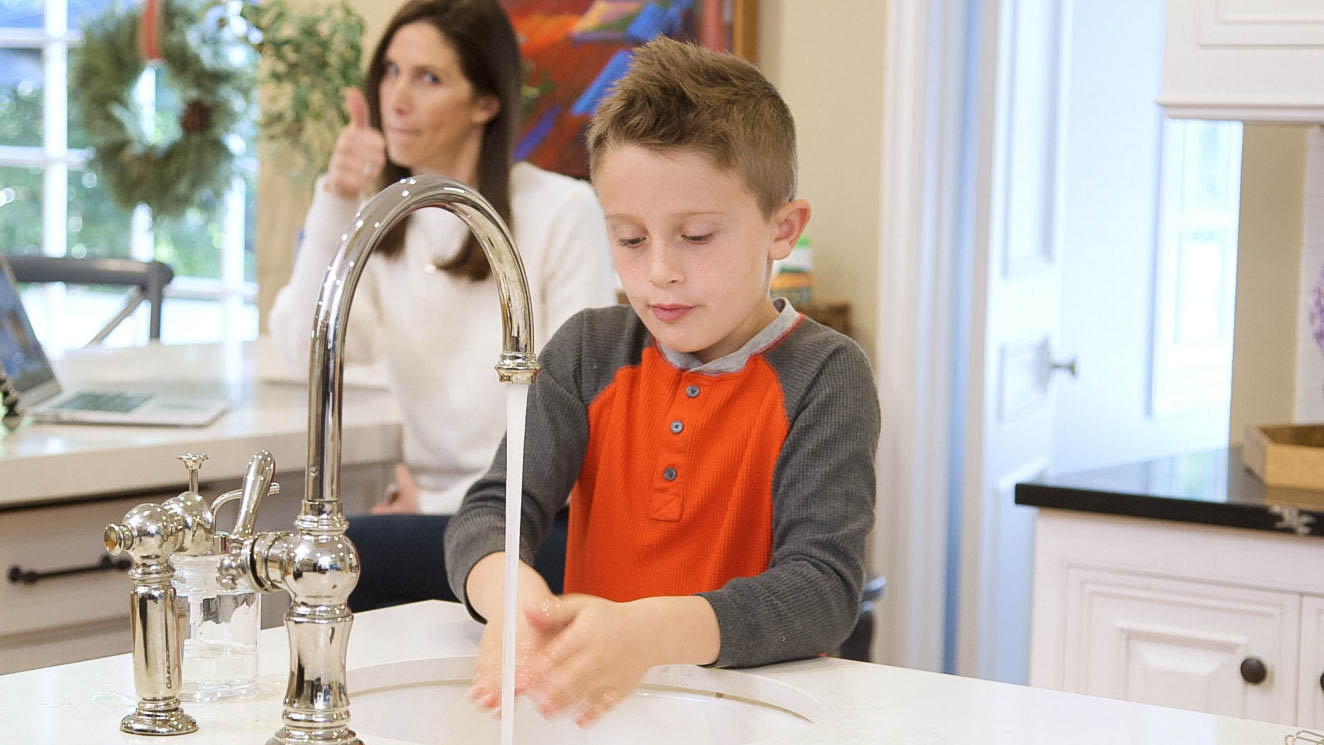

According to various Pinterest checklists, my three kids are old enough that they ought to by now be washing walls, scrubbing toilets and preparing full meals, respectively. We’re not quite there yet, but I’m working on it (the nine-year-old can make scrambled eggs, so that seems like a start?). I do realize I’m at that point in the parenting gig where I’m supposed to instill in my kids (four, six, and nine) a sense of work ethic and life skills.
To be honest, I don’t need my kids to be able to run the household like a well-oiled machine. That seems like setting myself up for failure and frustration. Especially because at this point, just getting them to regularly do the basics — make their beds, pick up their toys, clear their plates from the table — has been a massive struggle. And I finally figured out why:
I was paying them to do their chores.
In other words, my kids only delivered if they wanted the money badly enough. If it was “worth it.” I thought that paying for chores was a surefire way to motivate them (I remember dusting and vacuuming as a kid to earn extra cash), but, instead, this policy has backfired. Because rather than serving as a motivating factor, the money made my kids feel like the work was optional. When they didn’t need the money, they didn’t need to do their chores. Before long my kids were picking and choosing household tasks to get them just enough money for a specific reward they had in mind. Needless to say, their only motivation was money, not any actual sense of duty. And that motivation would only last a couple weeks at a time; after a trip to Target to spend their earnings on Hot Wheels and Dollar Spot trash, they were no longer interested in pitching in.
Experts say that this is par for the course. Sure, motivating with cash is effective in the short run, when the money and its accompanying purchase power are a novelty. But over time, paying kids for chores can work against what they need to learn, which is to be responsible and contributing members of their household community. Worse yet, it can make kids internalize the idea that they’re owed something for pulling their weight around the house. I definitely don’t want my parenting legacy to be a bunch of entitled slobs.
Anyway, once I realized I was totally doing it wrong, I found myself in the uncomfortable position of needing to overhaul our household chore policy; It seemed like a tall order to transition from a model which paid for each and every chore to one which… well… didn’t. Allowance plus unpaid chores seemed like a good compromise, since it still gave kids the ability to manage money, but it un-tethered that money from their household jobs.
I printed out new “responsibility charts” which contained all the things my kids were expected to do around the house, and got their input on which tasks they liked more than others. Each kid was assigned two daily chores like putting away dishes and feeding the dog, or wiping down the table after meals and washing the windows, plus their personal responsibility jobs (cleaning up after themselves in various capacities, packing backpacks, getting their homework done and signed off). I explained to them that I’d be adding allowance as a separate thing, but it wasn’t payment for their chores, which needed to be done as a matter of course, because they are members of a household.
The kids seemed on board, but I was still skeptical. I worried that giving my kids weekly allowance without having to earn it would make them lazy, but I was pleasantly surprised when the opposite happened. Once they weren’t nickel and diming their way to rewards, their natural desire to pitch in came back. Apparently it’s reward enough to hear a few words of praise and get to tick off another box on their checklist. I wish I’d known that sooner.
Of course my kids still need prodding some days, but other days I wake up to a kid whose room is tidied, backpack is packed, and hair is brushed before I’ve had my morning coffee. It’s rare, but it really does happen. But the best part isn’t simply that they’re finally doing their chores; it’s their understanding that such tasks are their share of what makes our home run. There is no more “helping” mom or doing something only to get paid, but instead, a communal effort that I hope will teach them not only the life skills they need, but the personal responsibility I hope they will model in their relationships later in life.







